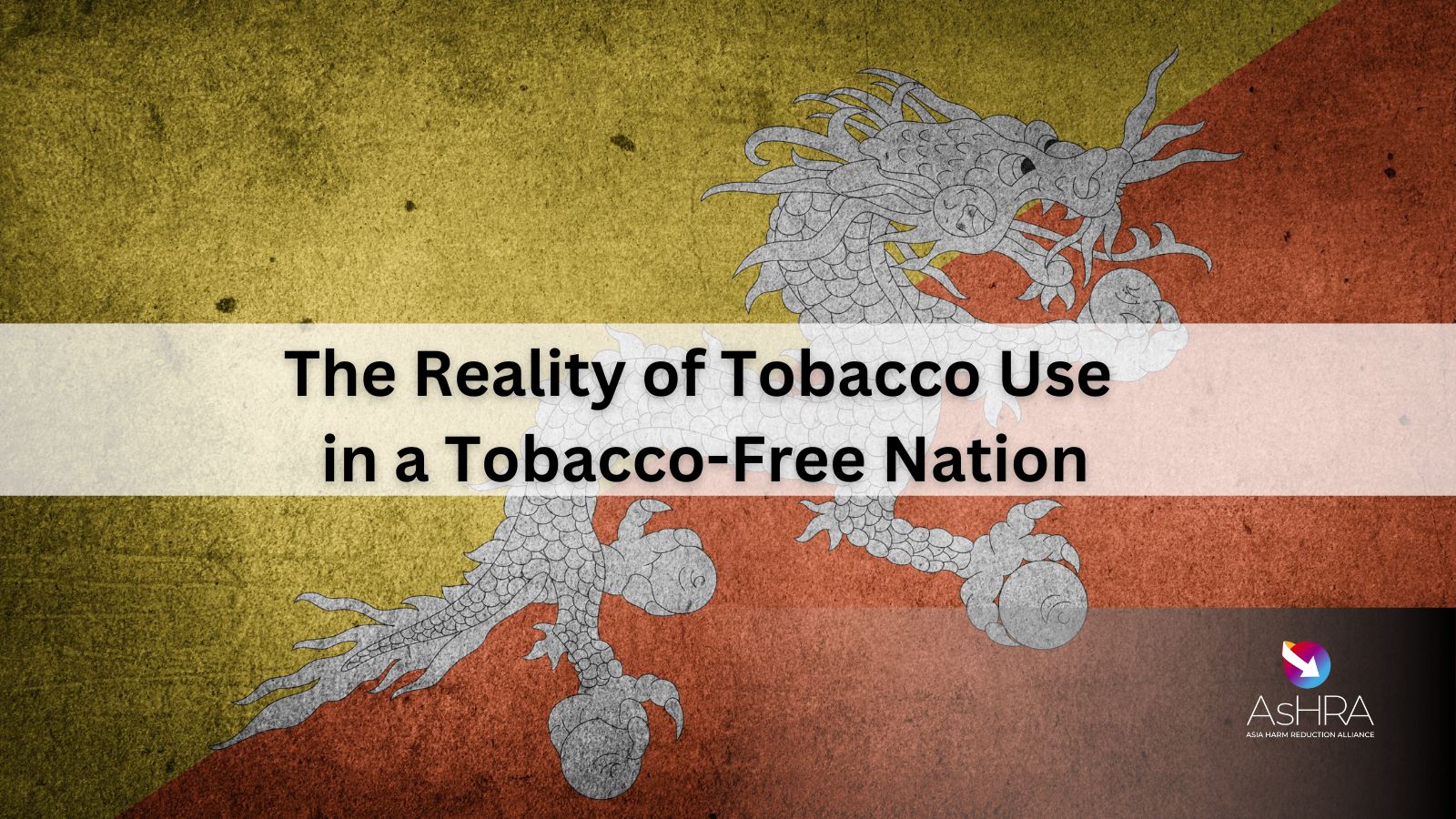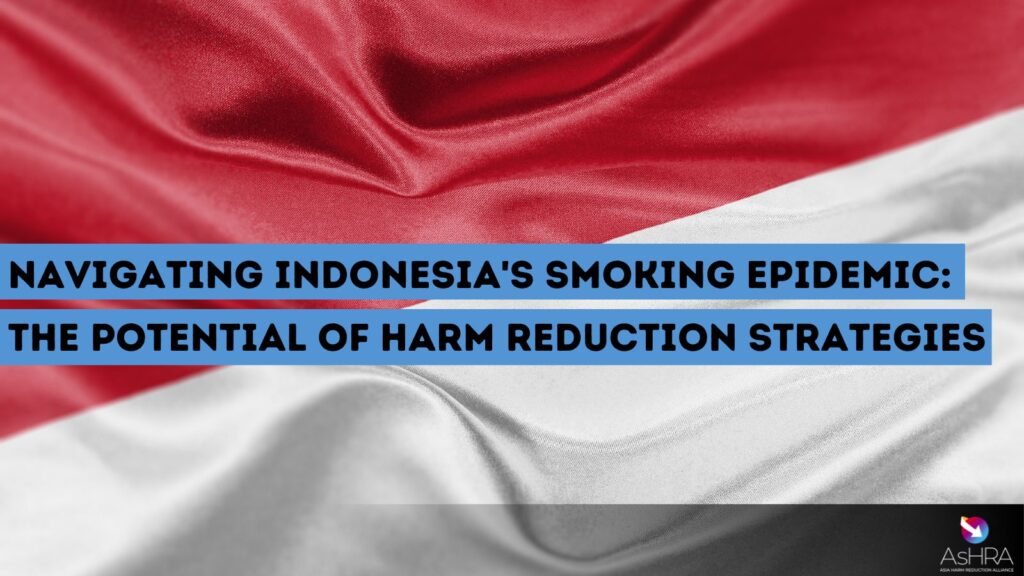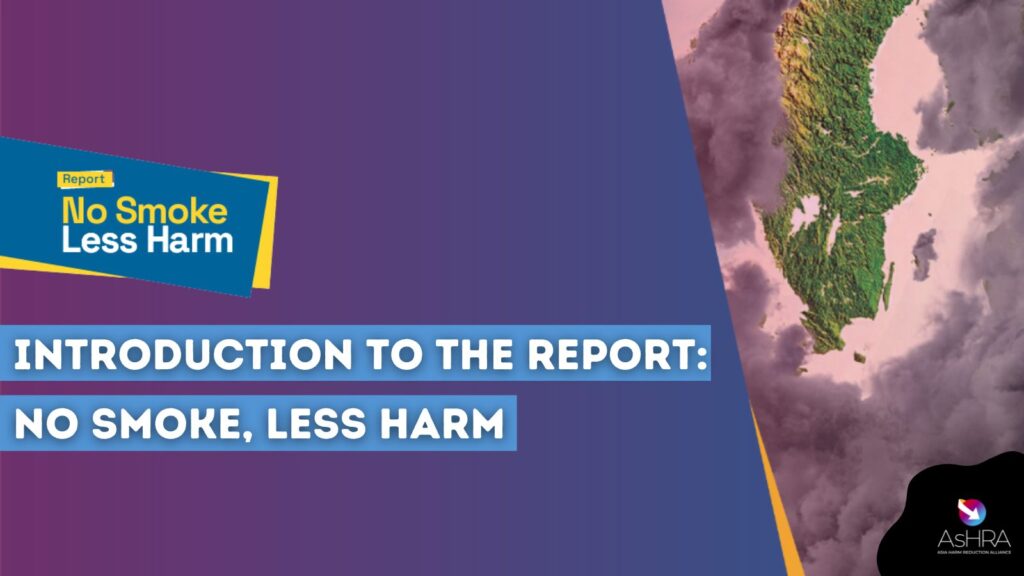Following Bhutan’s Example? The Reality of Tobacco Use in a Tobacco-Free Nation
The 2023 WHO Report on the Global Tobacco Epidemic identifies the Kingdom of Bhutan as a country where the adult daily smoking prevalence (2021) is only at 4%. This is one of the lowest – if not the lowest – percentages internationally and, at first glance, seems to align with the nation’s ban on the promotion, cultivation, sale and distribution of tobacco products.
Bhutan was one of the first countries to outlaw tobacco, with a policy of prohibition in 2004 and an official Tobacco Control Act of Bhutan since 2010 – not to mention discussion of prohibition dating back to 1729. With amendments in 2012 and 2013, the Tobacco Control Act of Bhutan only allows for a limited amount of tobacco products to be carried into the country by adults for their own personal consumption – and with a 100% tax.

This legal provision also mandates the monitoring of smoke-free public spaces and the maintenance of cessation clinics.
However, although promising on paper, the tobacco-free nation imagined by such legislation has not played out in reality. Despite the low rates of daily smoking, the 2014 Bhutan STEPS Survey shows that daily tobacco use in general is at a higher 22% – with smokeless tobacco use making up the majority of that statistic (18.5%). This figure only increases to 30% in daily male tobacco use and 25.2% in daily male smokeless tobacco use. While the Tobacco Control Act only allows for adults to import tobacco for personal use, the 2019 Global Youth Tobacco Survey also found that 22.2% of Bhutanese children aged 13-15 were currently using tobacco. Therefore, close to a quarter of the population of Bhutan consumes some form of tobacco – with cigarettes and other forms of smoking tobacco being in the minority.
The figures above reveal some glaring gaps in the approach of a nationwide ban on tobacco and also uncover a thriving blackmarket for tobacco products brought across the border from India. This became an urgent problem in the face of the COVID-19 pandemic as, despite Bhutan closing its borders to India, tobacco smugglers still fought to get across – and brought the virus with them. In order to ‘lessen the risk of cross-body contagion,’ the Prime Minister declared a temporary lifting of the tobacco ban through the Tobacco Control (Amendment) Bill, 2021 – which now permitted the governed sale of tobacco products in certain shops across the nation. Such an amendment has brought with it a new wave of discussions regarding the viability of the initial ban on tobacco products in Bhutan.
Despite a low daily smoking rate and a celebrated ban on tobacco products, an in-depth look at the reality of tobacco use in Bhutan paints a different picture. While a lack of access, as well as criminal and civil consequences, should result in people turning away from tobacco in theory, the practice instead shows people turning to a black market to access tobacco at inflated prices and increased risk.
In promoting or leading towards a smoke- or tobacco-free environment, it is important to have affordable, accessible and socially acceptable alternatives to tobacco use – such as e-cigarettes and nicotine pouches. While the earlier cited 2014 STEPS Survey includes a category for examining the prevalence of e-cigarette use, this statistic remains empty for Bhutan due to a lack of data on the usage of this harm-reduced alternative. Additionally, despite the promising mention of cessation clinics in the Bhutanese Tobacco Control Act, there is no mention of introducing or discussing harm-reduced alternatives within these settings.
As Bhutan discusses and re-examines its Tobacco Control Act with the post-pandemic return to normalcy, it is important that such discussions include the crucial role of harm-reduced alternatives in leading tobacco-users to a tobacco-free Bhutan.
Read more on tobacco harm reduction
Related Posts
More about
Alcohol Harm Reduction
More about







